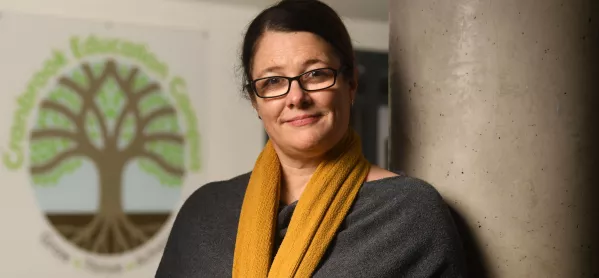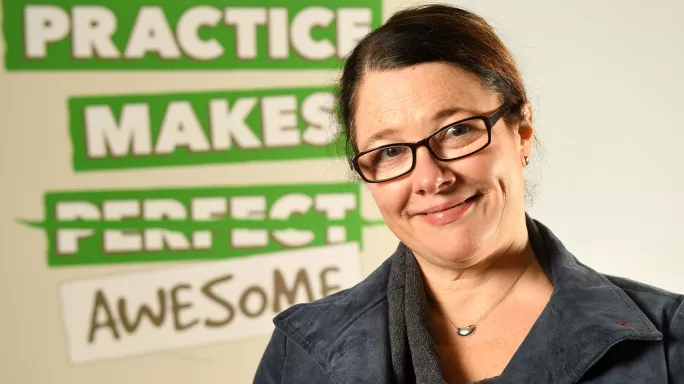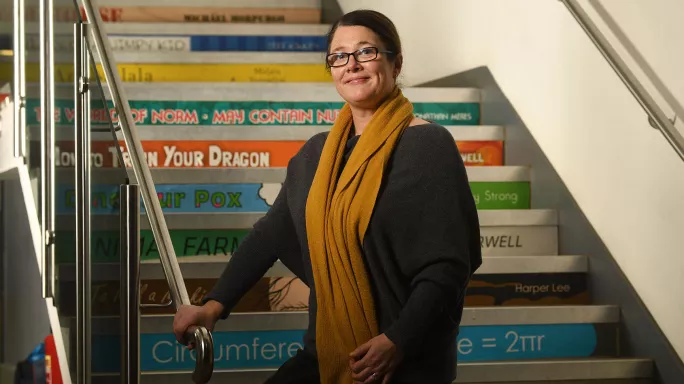- Home
- Leadership
- Staff Management
- 10 questions with...Moira Marder
10 questions with...Moira Marder

Moira Marder is CEO of the Ted Wragg Trust, a 16-school trust in the South West, with schools chiefly in Exeter and Plymouth. She became a teacher after university, teaching history and politics in London before moving to the region.
Answering Tes’ 10 questions, she talks about how a history teacher inspired her to join the profession; the power of schools working together - both within trusts and across geographical areas - to boost results; the need for reform of the special educational needs and disabilities (SEND) support system; and why trust leaders must learn to say no sometimes.
1. Who was your most memorable teacher and why?
My history teacher, Mr Philpott. He taught me in the 1980s in my school in East London. He was a really inspirational character, very committed. I tried really hard in his lessons and did really well, and I’ve tried to model myself, as a teacher, on him.
2. What were the best and worst things about school?
One of the best things was I got to grow up with and be educated with children from a whole variety of different backgrounds. I’ve still got some great friends from my school days.
It also made me interested in teaching for social mobility because I loved school and when I had a great teacher, I did well. That was the inspiration for me wanting to be a teacher.
I think the worst thing was when I was growing up in the 1980s, I was in a tough school in East London - it was a big school, so around 300 per year group - and I was one of only two girls who stayed on to do A levels.
Most of the girls went out to work and so I think one of the worst things was the fact that many girls didn’t fulfil their potential.
3. Why do you work in education?
I just absolutely love it. I worked in Feltham, in West London, for 15 years before I moved down to Devon, and that power of a teacher to transform lives - getting children to love history and politics - is an absolute privilege.
And I think, as a leader in a trust now, it’s about groups of schools working together to impact an area in a really positive way.

For example, when I first came to Exeter I joined a school that was in special measures as deputy and then became head, and I used my inspiration from the London Challenge to say to other schools, “We need to work together rather than work against one another.”
That was the reason for the trust being set up in the first place. Since we set that up we have seen such a transformation not just in education in the city but in the economy in the past 15 years, too.
4. What are you proudest of in your career?
My proudest moments are linked to seeing transformation in schools. When I arrived in Exeter my school, St James, was in special measures, and transforming that school over several years to make it into a really good school was an absolute privilege and a joy,
To then be able to work with the other schools in Exeter was transformative, too. If you look back 10 years ago the results at key stage 4 were some of the lowest in Devon, but now, collectively, Exeter had its best year ever in exam results.
And it’s how we’ve done that together, supported one another, shared resources, with the determination that parents deserve to be able to send their children to a really great local school. That has been a real source of pride.
5. Who would be your colleagues in your perfect staffroom?
What is really important is to have people who are really positive, who look for solutions even in the darkest of times. Because what you need is an environment where it is about “yes, we can do this” and “we are going to try and we are going to innovate”.
And I always want, spiritually, Ted Wragg [the late educationalist and academic] to be right in the centre of that staffroom, because he is the whole reason why we set this trust up. So every time we do anything and change anything, the question is always, is this what Ted would have believed in?
More Tes’ 10 questions:
- Lorrayne Hughes, chief executive of Cumbria Education Trust
- Baroness Wilcox, Labour’s education whip in the House of Lords
- Jude Lowson, the first female head at The King’s School in Canterbury
6. What are the best and worst aspects of our school system?
The worst aspects are around special educational needs and disabilities (SEND) and also alternative provision. I think our inability to get the SEND Green Paper off the ground is a real challenge for the sector.
One of the best things about our system: we have the potential to work together, no matter what the governance structure of our schools, to find solutions for problems, including children struggling in mainstream education and those who have got complex needs - we can work together to say, “What can we do together to improve the system?”
7. Who in education has influenced you in the past 12 months?
I would definitely say Leora Cruddas, at the Confederation of School Trusts (CST). We’re doing a lot of work, as a trust, on our community engagement strategy, and she has spoken a lot about trusts as anchor institutions. That has really influenced me.

Even more than that, though, just overall the work that she does. Every time she speaks, she shows kindness, humility and a spirit of generosity, so I always come away from listening to her feeling positive about the power of trusts to transform our communities.
8. If you became education secretary, what would you do?
I would spend time in different parts of the country to look at what they need.
We can’t have a sort of one-size-fits-all education system - there needs to be more agility and, as part of that, there needs to be more understanding about the regional challenges and the needs of different communities in different areas.
The other priority would be considering how to ensure that academic and applied or vocational learning are more equal, and considering how skills for the workplace are addressed more effectively pre-16.
9. What will our schools be like in 30 years’ time?
I’m not trying to be naively optimistic but I would like to think that we’d created a system whereby disadvantaged children have more equity and the gap has started to narrow.
I think we need to look at the opportunities around artificial intelligence as well. So in 30 years’ time you’ would see schools where it is being used in a really positive way - not something we are frightened of.
And I’d want to see a really joined-up education system between what we’re doing pre-16, post-16 and then higher education. Because at the moment it can still feel like it’s in silos.
10. What are the most important lessons you’ve learned in this role?
One thing I had to learn early was about being really clear on what we stand for as an organisation. And not to take schools on if we can’t - we had schools say, “Can we come and join you?” but they were all over the place geographically.
But we’ve been very clear about our sense of place and where we can be most successful. So I’ve learned that you need to communicate effectively with all stakeholders, have a plan and stick to that.
Moira Marder was talking to Dan Worth
Keep reading for just £1 per month
You've reached your limit of free articles this month. Subscribe for £1 per month for three months and get:
- Unlimited access to all Tes magazine content
- Exclusive subscriber-only stories
- Award-winning email newsletters



